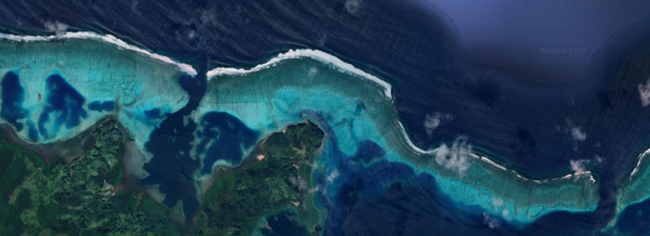Pacific Island countries and territories – in particular their Indigenous peoples as custodians of the ocean for their general good, sovereign rights, and holistic knowledge – are increasingly recognized as integral for achieving ambitious marine conservation objectives such as the global target to expand protected areas to 30% of the planet by 2030.
The reef passages of the region, connecting coastal waters and the open ocean, are known as outstanding hotspots of biodiversity and productivity. Hence, they are of multifaceted significance for the overall health of coral reef ecosystems. SOCPacific2R explores these social-ecological ‘keystone places’ and ‘communication zones’.
Through its empirical focus on New Caledonia and Fiji, and based on a trusted and interdisciplinary French-German-Pacific partnership, the project aims at:
1. conducting a transdisciplinary study of reef passages as under-researched features of social-ecological coral reef systems that constitute complex, interconnected, and dynamic assemblages of living and non-living, dwelling and transiting, entities that interact with each other;
2. documenting both area-based and other management and conservation arrangements applied to reef passages, including pros and cons that local stakeholder groups identify;
3. establishing a participatory science-society-policy dialogue informed by social-ecological studies, Oceanian socio-cosmologies and sovereignties, and governance norms in/for the management and conservation of reef passages. Through these interrelated objectives and associated capacity-building components, SOCPacific2R will feed the vision of the UN Ocean Decade (2021-2030) and will facilitate the integration of reef passages in future marine/ocean policy and practice. It will provide holders of customary rights, policy-makers and other stakeholders with evidence-based research and exchange fora to empower them for the joint management and conservation of reef passages.





